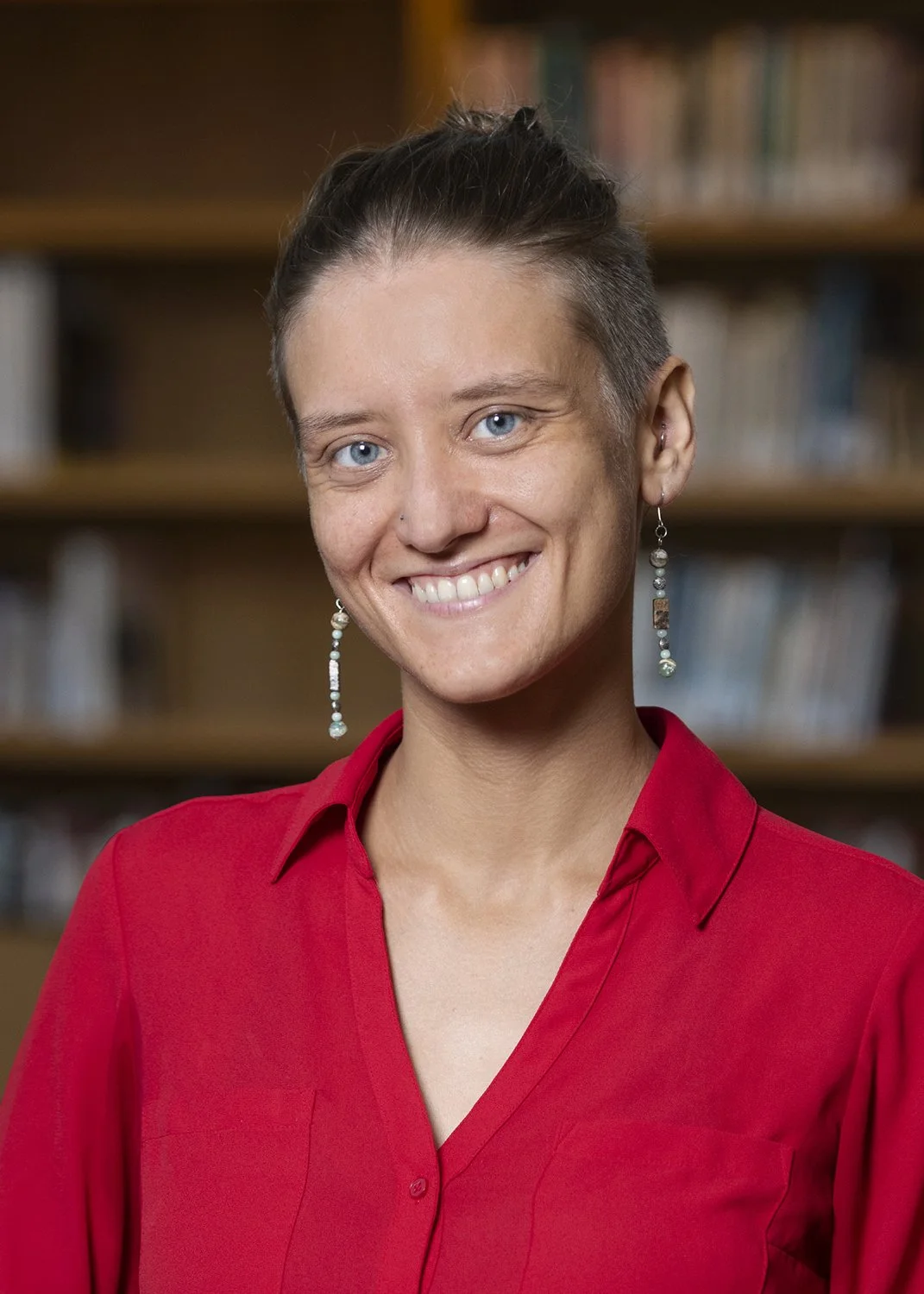Out the windows of the gym’s upper level, I see the tops of pines. The building was designed this way, a purposeful view. I’m on the elliptical machine—did I mention it’s raining out—gliding in place, reading a nature book made from trees, essays about mining from 1990, the year I was born. Jeopardy! is on the TV, but the sound’s off, no subtitles, just the text of the clues on-screen, so I can’t tell if my answers are right, except “What is Door County?” because I know the answer; it’s local. Last week, I went kayaking with Kat for the first time, well, not my first time kayaking, but my first time kayaking with her, and here. On the caravan to the put-in and back, one boat in my car, one boat in hers, we drove past signs protesting the Skunk Hollow Mine, a nearby current cornfield potentially dug out and scoured for limestone gravel. I’ve been following this story through the articles of capitalism: “a development,” “is proposed,” “delayed by,” “inquiry into,” “conflicts of interest.” On the water, Kat invited me to be quiet because it would mean we would scare away fewer animals, and we heard words like LOOM and SHHHH and CHEE. The onomatopoeia of DRIP, our petroleum tools scooping the duckweed. I’m tempted to mention the species we saw by name, a sandpiper who didn’t fly away, sandhill cranes, dozens of them, deer, beaver, otters who played on the water in the last few minutes of our two-hour sightseeing ride. I seem to obsess over measuring time outside like I’m on an elliptical, but the story is, all we did was paddle from here to there and here again.
Some of the books I’ve been reading lately use terms like “pristine” and “wild.” I don’t know what those mean, how to conceive of a place in that way versus another. I haven’t really hiked and camped “Out West” or “way Up North” and these trickling feelings of “non-expert,” “amateur,” and “unknowable” color my willingness to speak out about what I have heard and seen and tasted. I’ve dreamed about being trapped inside a boat that sinks. I’ve dreamed of the ground sucked out from under me. But I don’t think I’ve been to a mine, even in dreams. I’ve just heard of these places, the lunar wound, protestors chaining themselves to heavy machinery that would tear them apart like torture. Every activist I’ve known who’s taken this kind of action has said they would do it again. “In a heartbeat,” people say. I haven’t, though sometimes as a poet, I feel like a miner mining memories, excavating out heart chambers, my body as miner and mine owner and earth. I leave the gym and walk by the seven squirrels who live in the trees outside my windows, all furiously burying at once. Patting the earth so softly I cannot hear their small and muscled feet. A chipmunk zips in and out of the south drainpipe. Indoors, I pick up my dictionary, one in throwback style made of softwoods instead of rare earth elements, and I look up the entry for “kayak” which tracks the white appropriation of this Inuit word to 1757. To write something down is an attempt to make it permanent in a certain worldview, a forcing I have accepted in language that has become of here, of us, but a language that was barged in from somewhere else. Painted on. Englished. Violenced. The cops who arrest protestors are called a “force,” law en-force-ment. But, loving the land is also force to be reckoned with, the force of solidarity.
Today, my students brought up a new question for us: whether or not writing poetry is a form of activism. Their opinions are divided, but every person in the room had something they wanted to share. I don’t tell them how much I agonize about whether or not teaching can be activism. I marvel at how my students act with their hands over their hearts, all the words they float into circulation. How willing they were on the morning we walked outside and everyone sat under a tree and listened.
Freesia McKee (she/her) writes about history and place. She practices poetry, creative prose, book reviews, and literary criticism. Freesia served as the Fall 2022 Poet in Residence at Ripon College. In 2023, she will begin working as an Assistant Professor of English at UW-Stevens Point. Read more at FreesiaMcKee.com.

